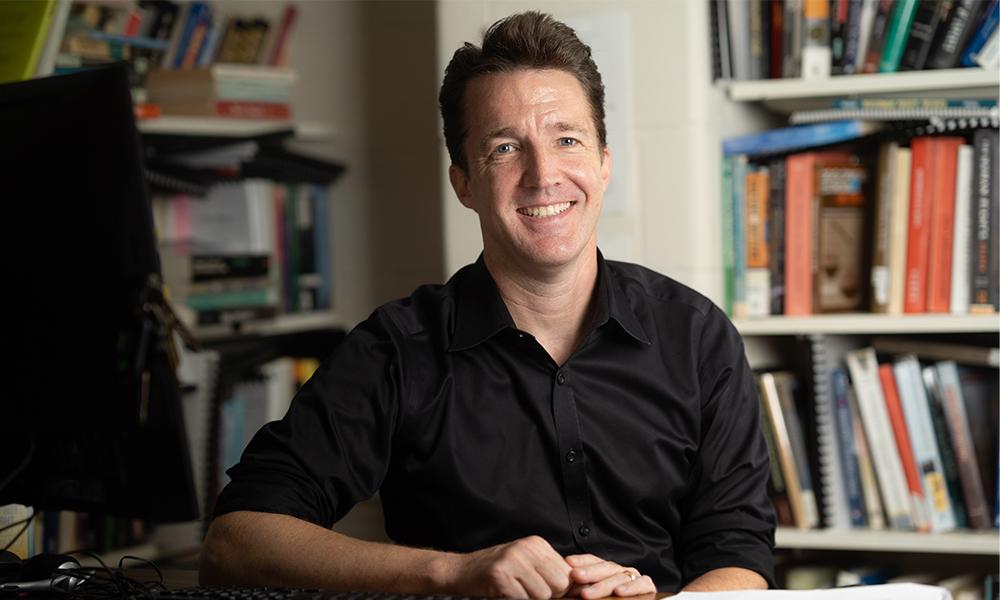JMU History professor receives prestigious Guggenheim Fellowship
College of Arts and Letters
SUMMARY: History professor Michael Gubser was awarded a Guggenheim Fellowship for 2021 for his book project that traces the intellectual history of development and draws upon his professional experience working for several international development organizations.
Michael Gubser, a professor of History at James Madison University, was awarded a Guggenheim Fellowship for 2021 for his book project, “Leaving the Past Behind: History and Ahistoricism in International Development.” The project draws on Gubser’s academic expertise in intellectual history and his professional experience as a proposal writer, needs assessor and project evaluator for several international development organizations.
|
"The fellowship award acknowledges the brilliance and ground-breaking quality of Gubser’s work and deservedly places him among the highest rank of intellectual historians working today." Dean Robert D. Aguirre |
U.S. Senator Simon Guggenheim and his wife created the John Simon Guggenheim Memorial Foundation in 1925 as a memorial to their son. The Foundation seeks to “add to the educational, literary, artistic, and scientific power of this country, and also to provide for the cause of better international understanding.” Guggenheim Fellowships are awarded to individuals who have demonstrated exceptional capacity for scholarship or creative ability in the arts. The Foundation receives approximately 3,000 applications each year and awards about 175 fellowships.
Guggenheim “is among the most highly prized recognitions in all the arts and sciences, a truly career-defining achievement," Dean Robert D. Aguirre said. "The fellowship award acknowledges the brilliance and ground-breaking quality of Gubser’s work and deservedly places him among the highest rank of intellectual historians working today.”
Gubser’s project begins with the observation that foreign aid planners rarely consider the history of the societies in which they work. Practitioners tend to design projects based on universal assumptions about poverty that overlook local history and cultural conditions. The book traces the intellectual history of development, examining key theoretical and policy statements to demonstrate the marginalization of history in favor of technical solutions. Drawing upon his professional experience and previous research, Gubser integrates case studies of aid programs in Guatemala, Bangladesh, Zambia and Uganda.
|
"The fellowship provides affirmation for stepping outside my comfort zone, taking risks and pursuing interdisciplinary work." Michael Gubser, History professor |
He will devote the nine months of the Guggenheim Fellowship period to completing the book manuscript. “The time, money and recognition are, of course, wonderful and thrilling," Gubser said. "What is even more important is that the fellowship affirms a project that is near and dear to my heart. I was trained in European history. This project is a big departure, and I sometimes wondered: Am I taking on too much? The fellowship provides affirmation for stepping outside my comfort zone, taking risks and pursuing interdisciplinary work.”
